Food, in its simplest form, is essential for survival. It provides the necessary nutrients and
energy for our bodies to function. But beyond this basic necessity, food holds a much deeper
significance in our lives. yokubet is an expression of culture, a medium for creativity, and a
reflection of the world we live in. As we dive deeper into the world of food, we uncover its
diversity, its cultural importance, and its role in both our personal well-being and the global
environment.
The Diversity of Food Around the World
One of the most remarkable aspects of food is its diversity. Each region of the world offers a
unique culinary experience, shaped by history, geography, and the ingredients available in
that area. For instance, Italian cuisine is known for its emphasis on fresh, high-quality
ingredients such as tomatoes, basil, olive oil, and pasta. The use of olive oil is particularly
significant in Mediterranean diets, not only for its flavor but for its health benefits as well.
In contrast, Japanese cuisine is famous for its delicate balance of flavors and textures.
Sushi, sashimi, and ramen are staples, often focusing on fish, rice, and vegetables.
Japanese food places a heavy emphasis on presentation, with the aesthetic appeal of the
dish often as important as the taste. The clean, minimalist approach reflects the culture’s
reverence for nature and harmony.
Meanwhile, in the Middle East, spices play an essential role in culinary traditions. Dishes like
hummus, falafel, kebabs, and shawarma are popular across the region, with flavors
enhanced by ingredients such as cumin, coriander, sumac, and saffron. These bold,
aromatic spices not only create rich and layered flavors but also carry health benefits,
including anti-inflammatory properties.
The diversity of food goes beyond traditional recipes. As migration and globalization
continue to shape our world, food has become a bridge between cultures. Fusion cuisine,
the blending of different culinary traditions, has gained popularity in recent years. This trend
highlights how food can transcend geographical and cultural boundaries, bringing people
together through the universal language of taste.
Food as a Reflection of Culture
Food is not just something we eat; it is a mirror of the society we live in. It reflects our history,
our values, and even our social norms. Take, for example, the traditional feast of
Thanksgiving in the United States. The dishes served—turkey, stuffing, cranberry sauce, and
pumpkin pie—tell a story of the country’s agricultural roots, its colonial history, and its
celebration of abundance and gratitude.
In many cultures, food also plays a central role in rituals and ceremonies. In India, for
instance, food is deeply intertwined with religion and spirituality. The concept of prasad
refers to food offerings made to deities, which are later shared among worshippers as a sign
of divine blessing. Similarly, in Jewish culture, the Passover Seder meal is a key component
of the holiday, with each food item symbolizing different aspects of the Israelites’ journey out
of Egypt.
Even in everyday life, food serves as a medium for family and social bonding. In many parts
of the world, meals are a time for gathering, sharing stories, and strengthening relationships.
The communal aspect of eating is deeply ingrained in various cultures, from the Italian cena
(dinner) to the Japanese kaiseki (multi-course meal).
The Role of Food in Health
Beyond its cultural and social significance, food is also integral to our health. The right
balance of nutrients—carbohydrates, proteins, fats, vitamins, and minerals—is essential for
maintaining a healthy body. However, in today’s fast-paced world, many people find
themselves consuming foods that are high in calories, sugars, and unhealthy fats, leading to
an increase in chronic health conditions like obesity, diabetes, and heart disease.
The rise of processed foods has been a major contributor to these health issues. Processed
foods are often stripped of their nutritional value, leaving behind empty calories that provide
little in the way of essential nutrients. To combat this, health experts advocate for a balanced
diet that emphasizes whole foods, such as fruits, vegetables, whole grains, lean proteins,
and healthy fats. These foods provide the body with the nutrients it needs to function at its
best, support the immune system, and maintain a healthy weight.
In recent years, there has also been a growing focus on plant-based diets. Vegetarianism
and veganism have gained popularity not only for ethical reasons but also due to their
potential health benefits. Studies suggest that plant-based diets can reduce the risk of heart
disease, lower blood pressure, and improve digestion. Additionally, plant-based foods tend
to be rich in antioxidants, which help fight inflammation and oxidative stress in the body.
Sustainable Food Practices
As the global population continues to grow, the sustainability of our food systems has
become a major concern. The environmental impact of food production—such as
greenhouse gas emissions, water usage, and land degradation—has prompted calls for
more sustainable practices. Sustainable agriculture focuses on minimizing environmental
harm, promoting biodiversity, and ensuring that food production can meet the needs of future
generations.
One key aspect of sustainable food practices is reducing food waste. It is estimated that
approximately one-third of the food produced globally is wasted. This not only contributes to
environmental harm but also exacerbates food insecurity. By adopting better practices such
as meal planning, composting, and utilizing leftovers, individuals can help reduce food waste
in their own homes.
Another important aspect of sustainability is supporting local and seasonal foods. By buying
locally grown produce, consumers can reduce the carbon footprint associated with
transportation and support small-scale farmers. Eating seasonal foods also ensures that
produce is fresh and at its peak flavor, while also benefiting the environment by reducing the
need for energy-intensive growing practices.
Conclusion
Food is much more than a means of sustenance. It is a gateway to understanding the
diverse cultures, traditions, and histories of our world. It has the power to bring people
together, create new connections, and foster appreciation for the diversity of the human
experience. As we continue to navigate the complexities of modern life, it is crucial to
remember the importance of food—not only for its role in our health but also for its potential
to shape our global future in a sustainable, ethical, and inclusive way. So, the next time we
sit down for a meal, we should take a moment to appreciate not only the flavors on our plate
but also the deeper stories they tell.
The Fascinating World of Food: A Journey Through Taste, Culture, and Health
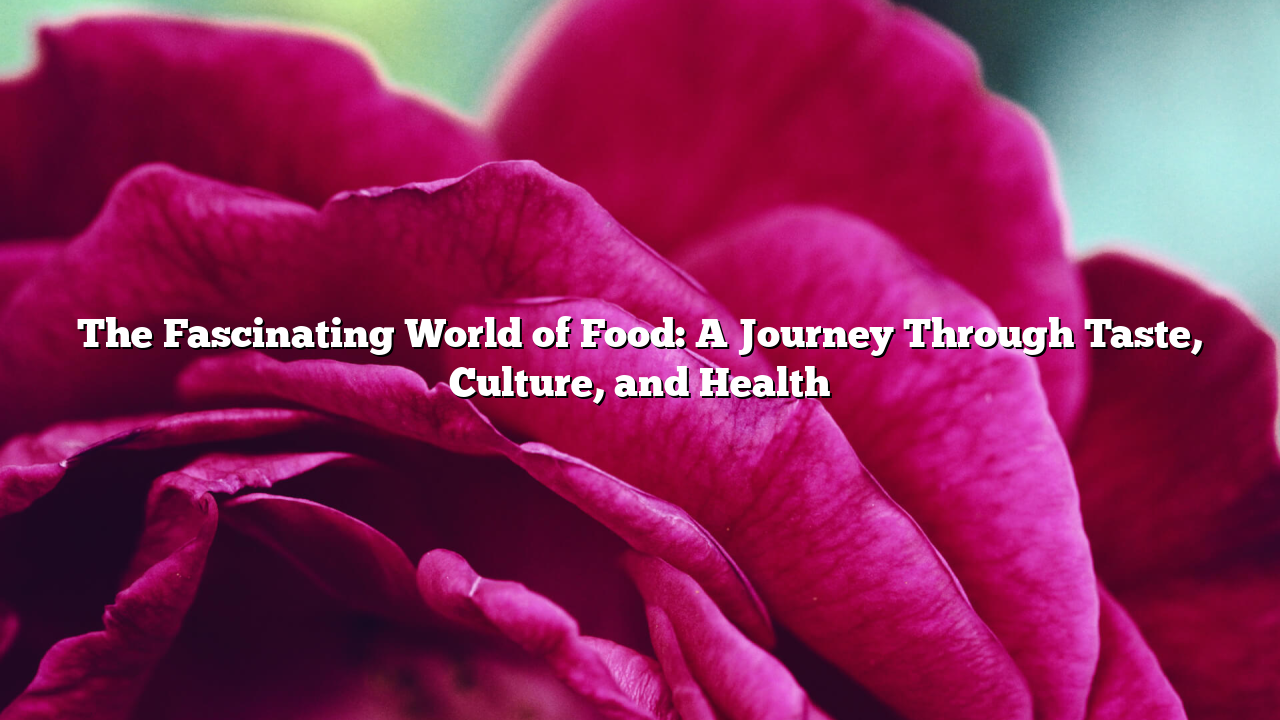
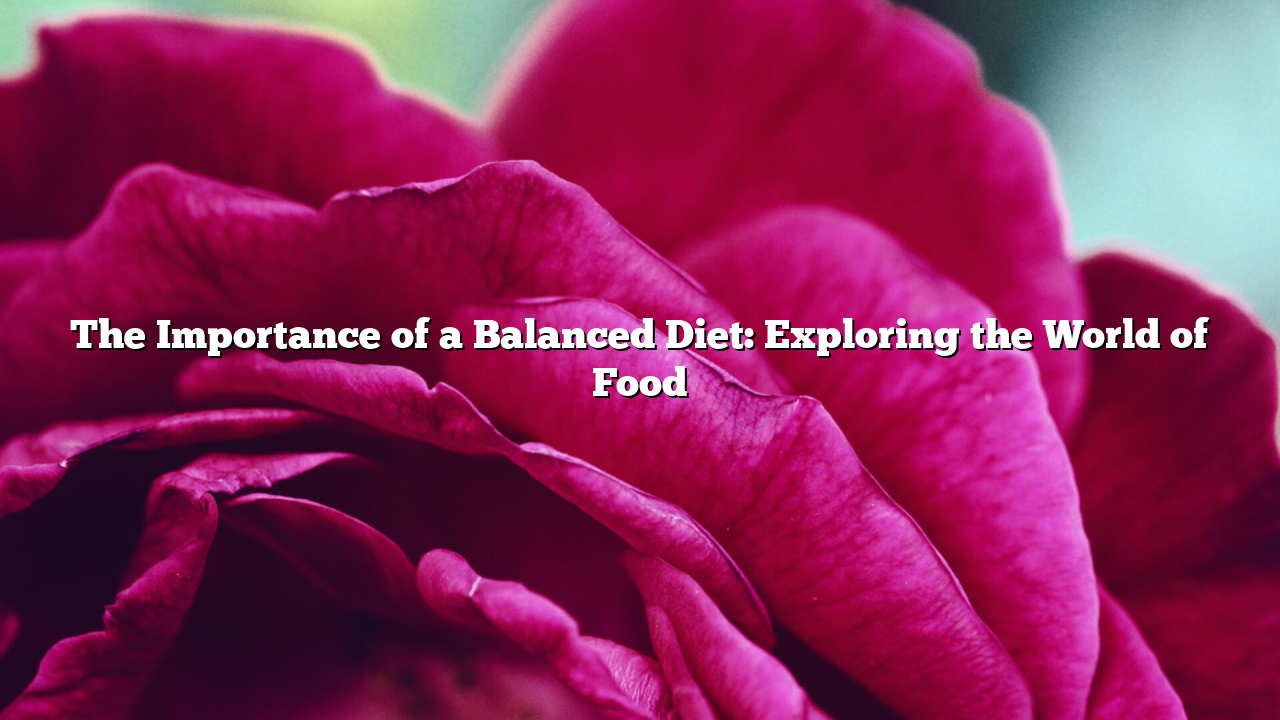
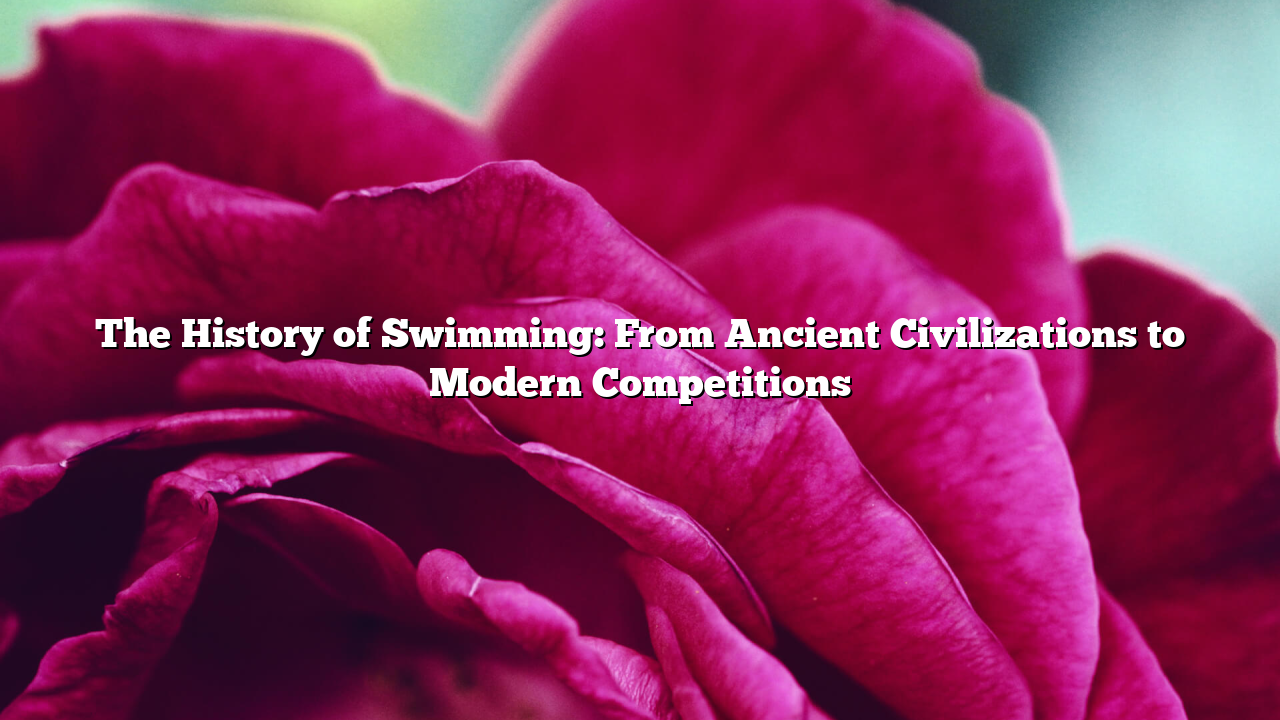

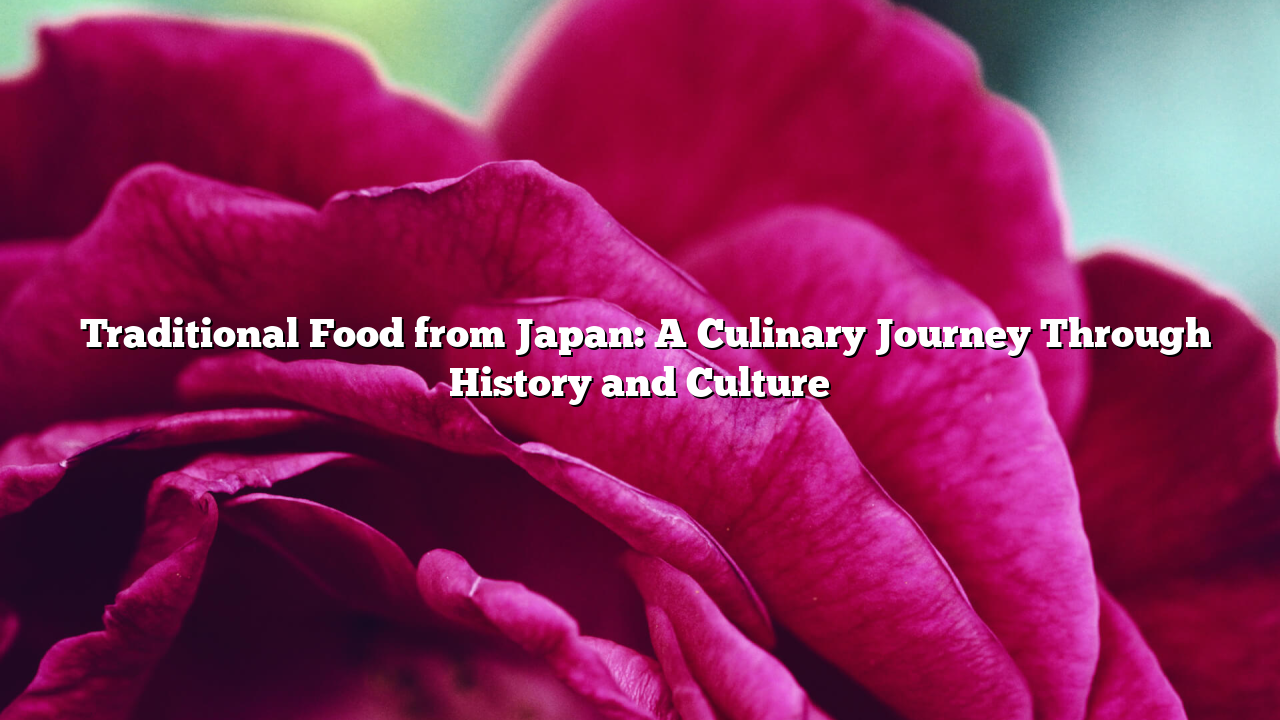
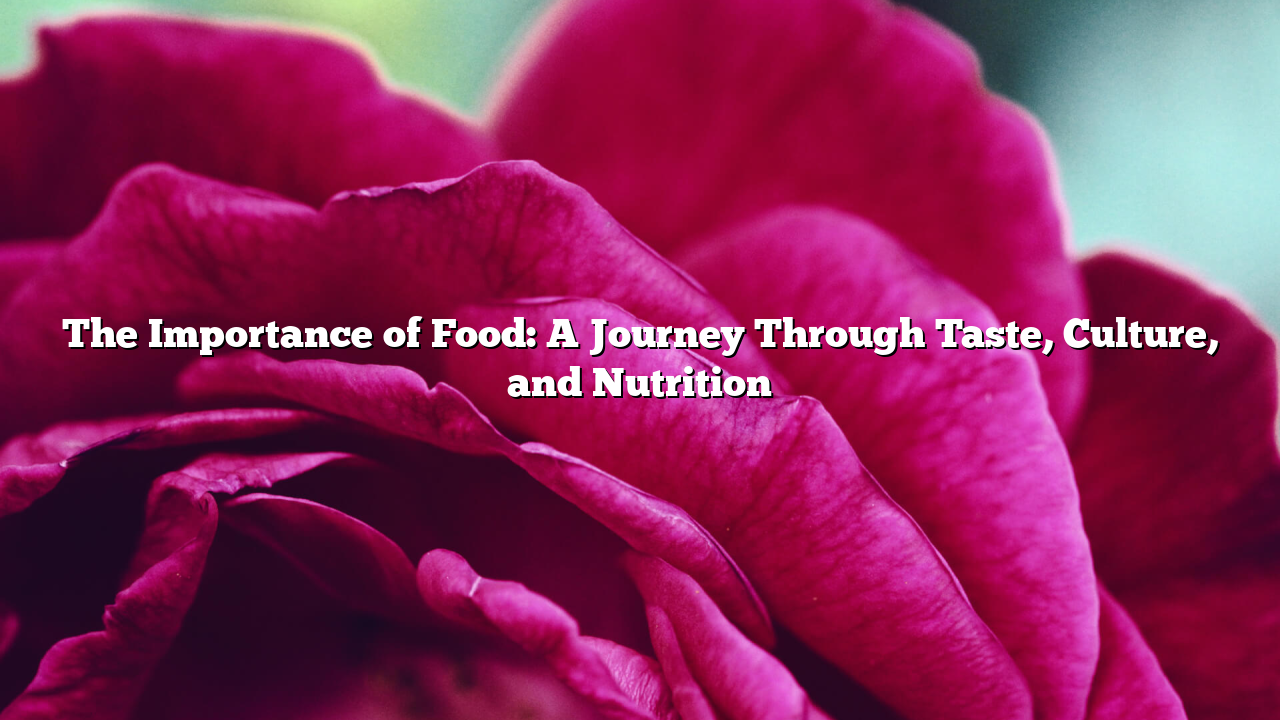
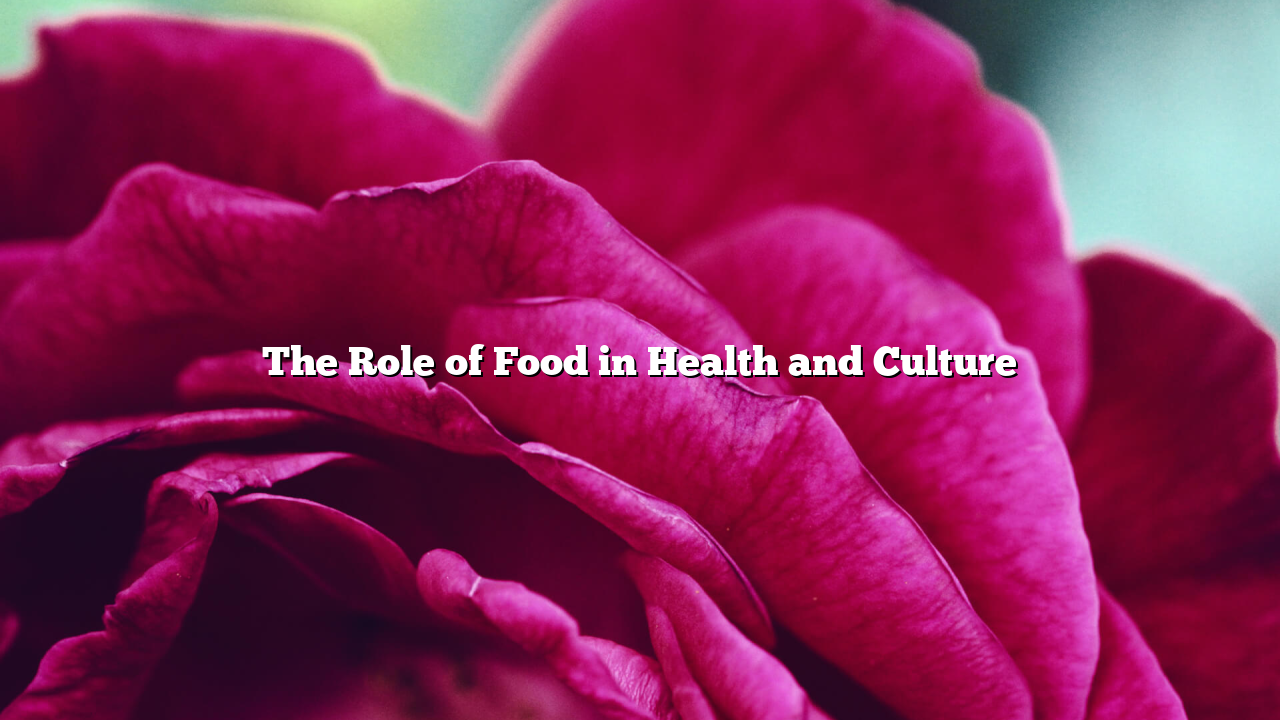


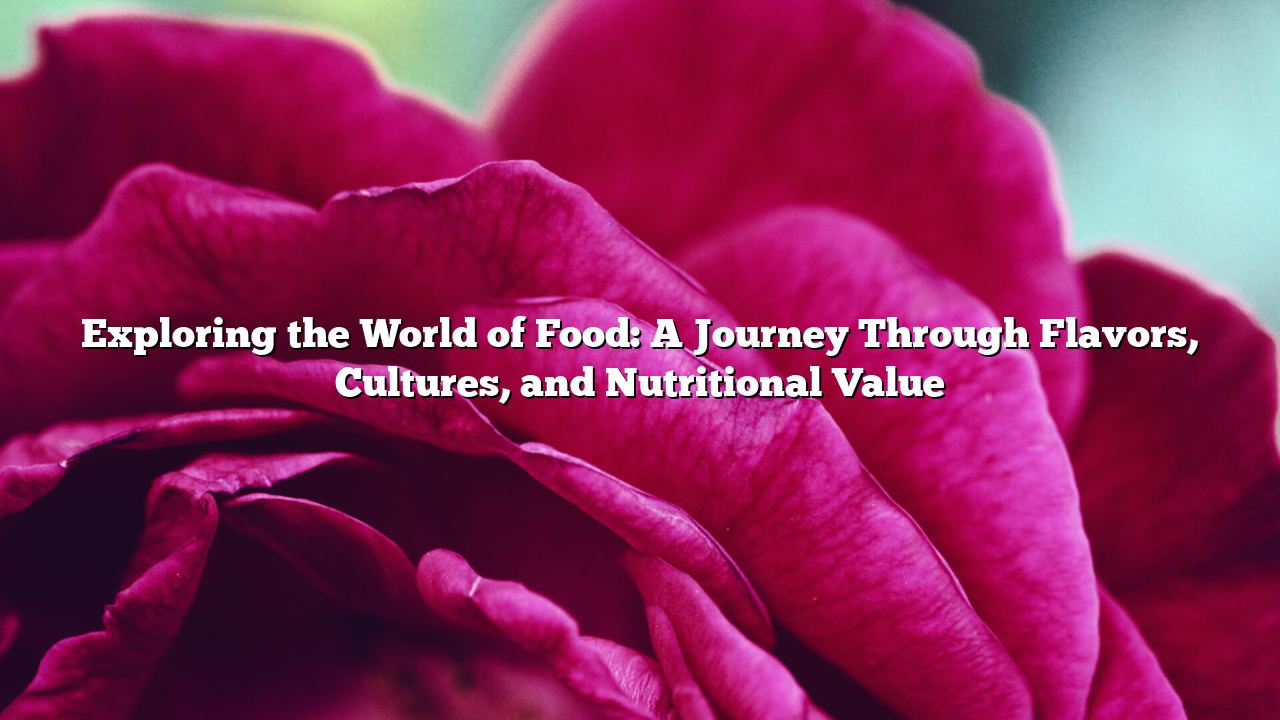
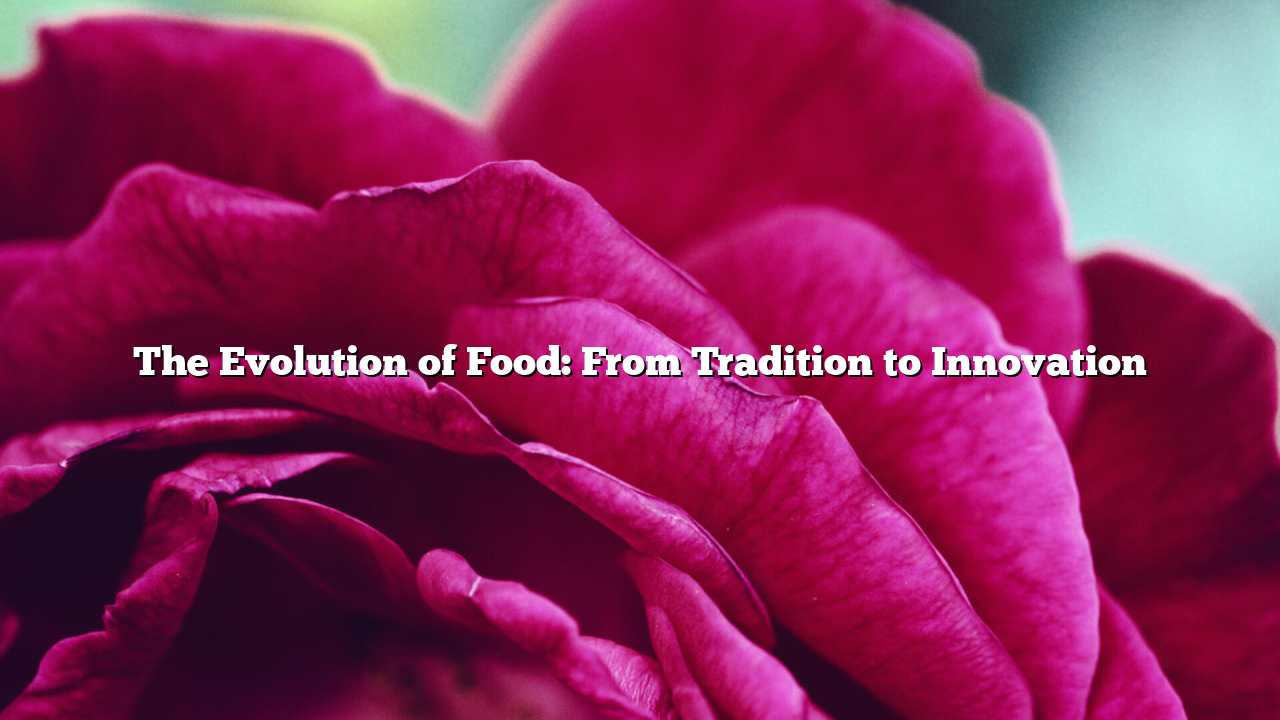
Leave a Reply